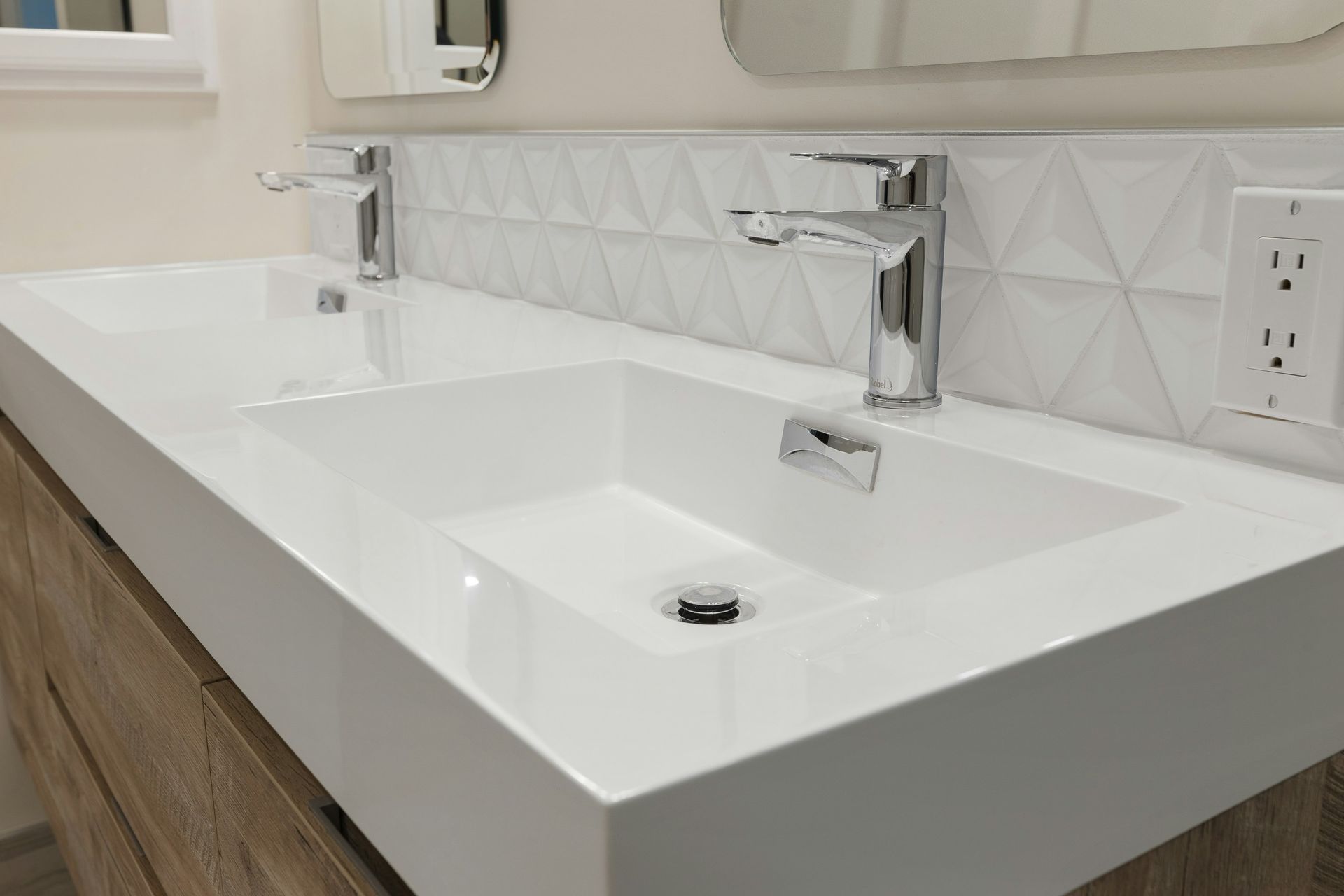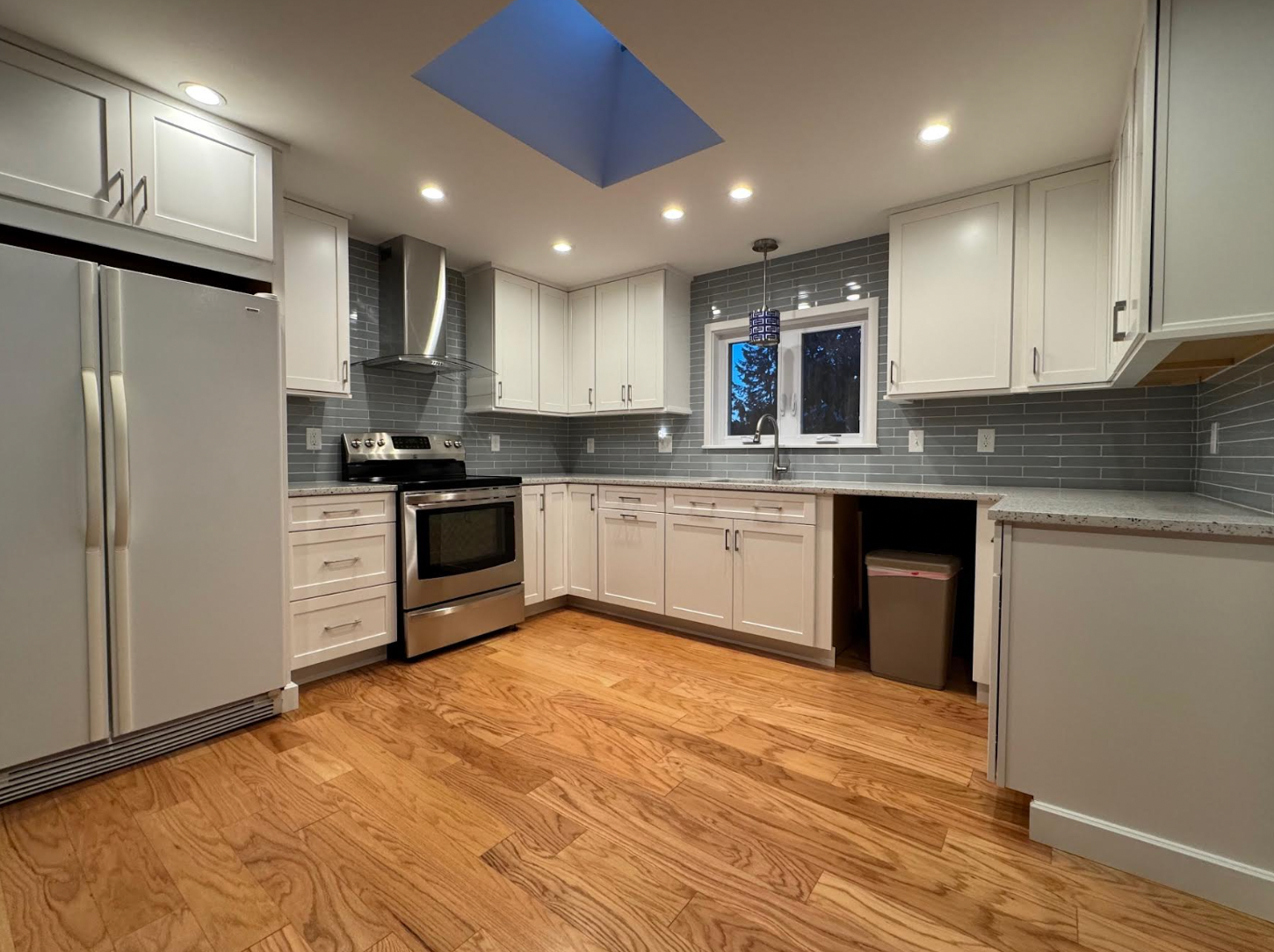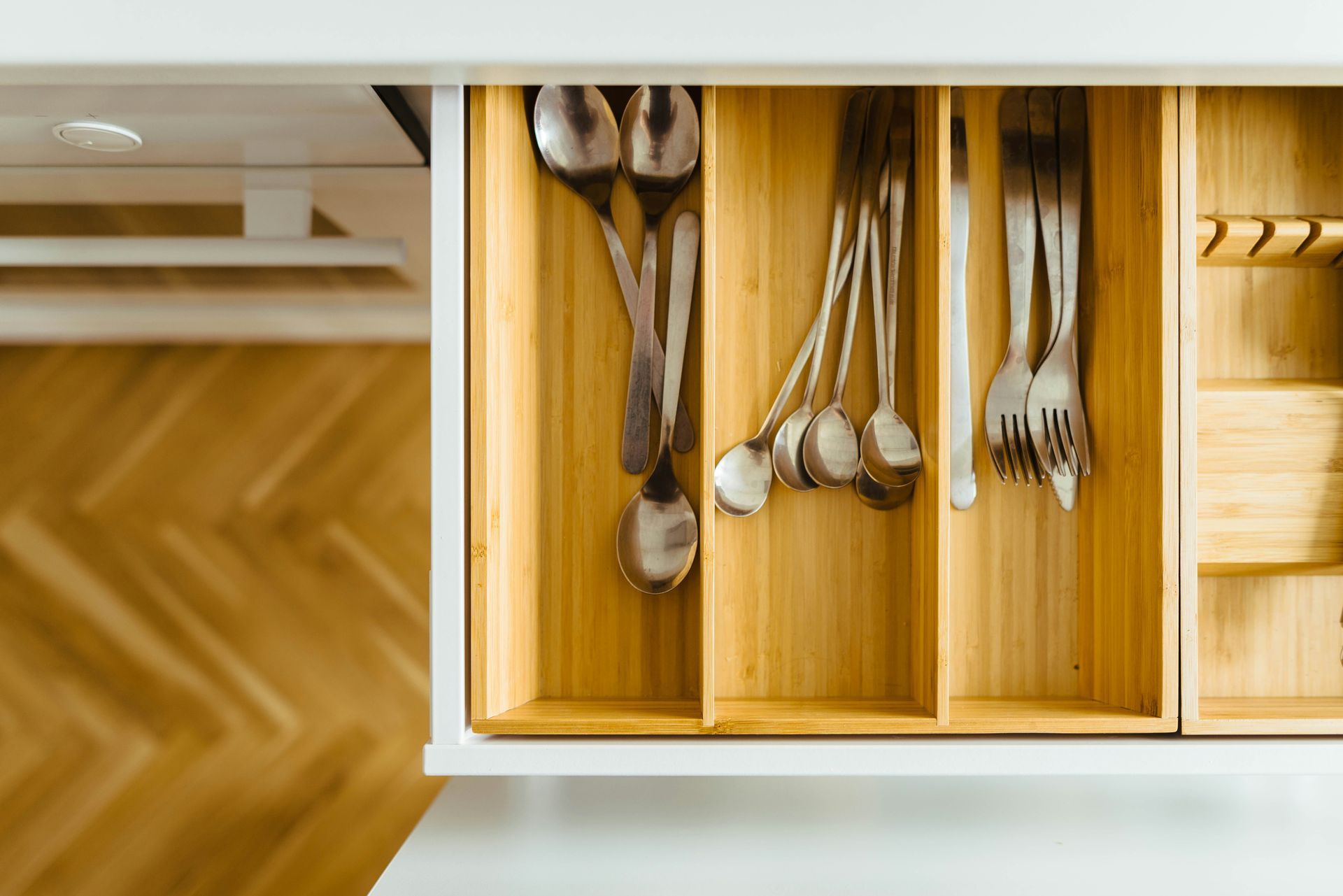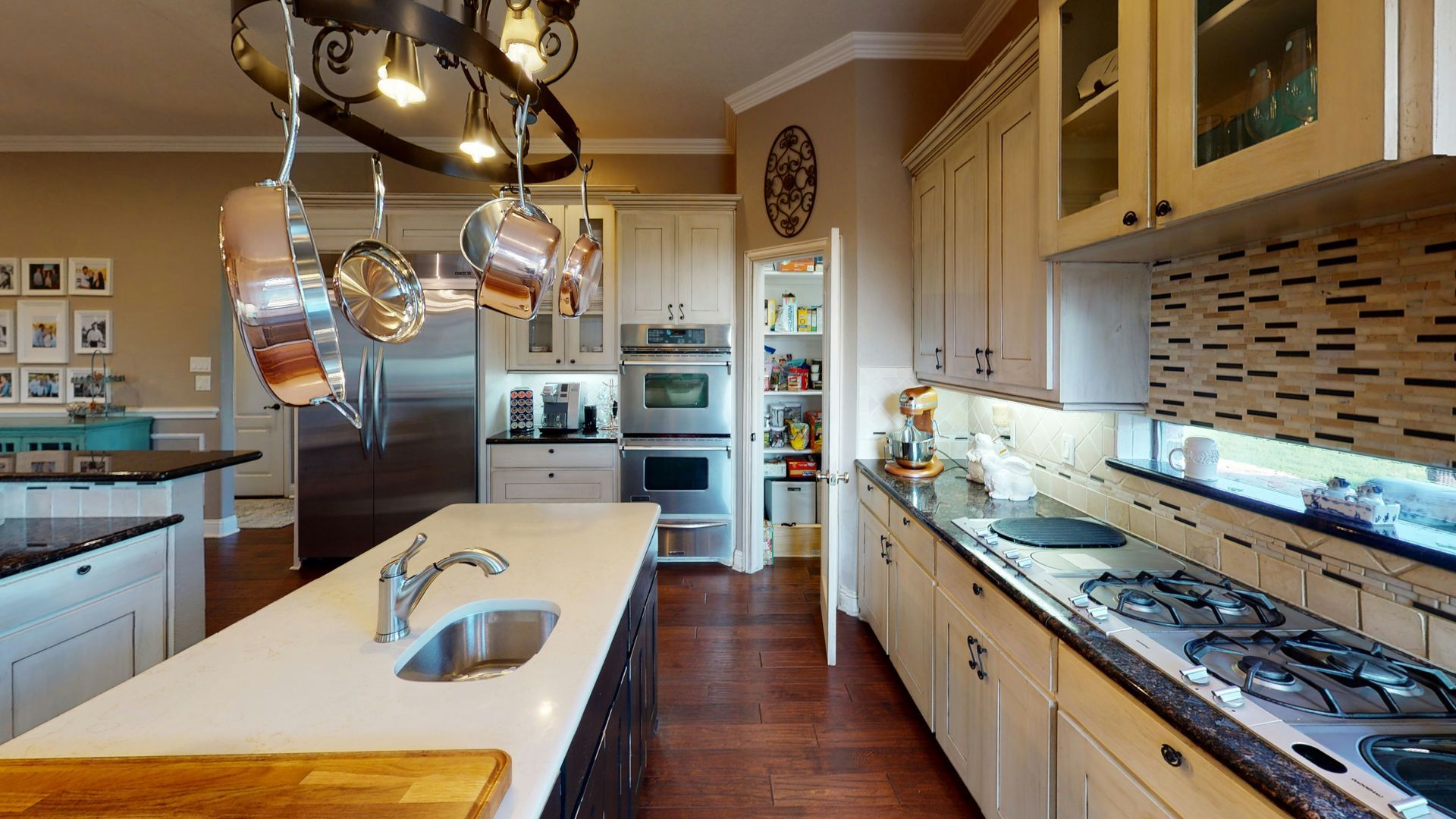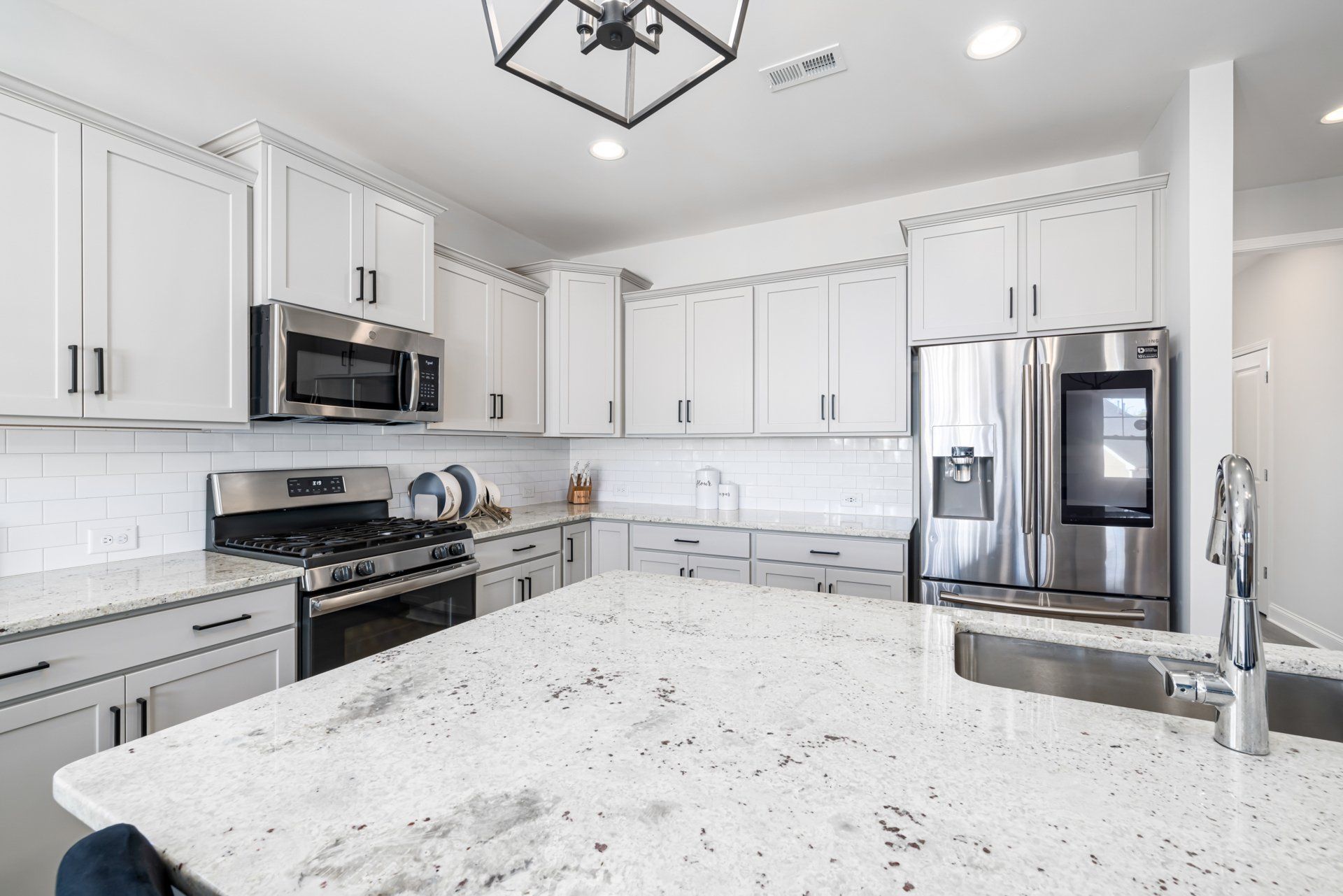Whether you’re creating a custom kitchen for your new home or redesigning an existing space as part of a kitchen remodel, countertops can significantly impact the room’s look and functionality. There are many material options available, ranging from granite to quartz and even concrete. They can be vastly different in terms of durability and appearance, each with its own set of advantages and drawbacks. Here’s an essential guide on the most common countertop materials and which one may be best suited to your home.
5 of the Most Popular Countertop Materials
Natural Options
There are a few types of natural stone suitable for kitchen countertops.
Granite. Granite comes from large slabs of stone taken directly from the earth. As a natural formation, each granite slab varies in appearance. You can also customize the finish of your granite countertop, opting for a polished, matte, shiny, or specialty finish. It’s a great choice for the kitchen because of its heat resistance, allowing you to place a hot pan or pot directly on its surface without worrying about damage. Despite its one-of-a-kind charm, granite does have a notable con – porosity. Because granite is so porous, it is prone to staining. Sealing can help prevent discoloration, but this added maintenance step must be performed regularly to ensure proper coverage.
Marble. Like granite, marble is cut from the earth. Mineral deposits result in gorgeous swirls and patterns within the stone, making it a classy and luxurious choice for kitchen countertops. Various colors are available, each with its own striking appearance. However, it may not be a fitting choice for the heart of your home because it is soft and porous. Not only is it at risk of staining but scratching, too. Marble counters require regular maintenance to keep it looking pristine. However, even with your best efforts, it can sometimes get a “living finish,” which is a nice way of saying it shows wear and tear.
Engineered Options
Manmade countertops can be a bit more durable and still be visually appealing.
Engineered Quartz. Quartz is a natural material, but most quartz countertops combine the mineral with synthetic products. Quartzite countertops are made of pure quartz but are heavy and complicated to install, so most homeowners turn to quartz instead. Because it is manmade, it comes in various styles and colors. The biggest advantage is that it is naturally stain and scratch-resistant. Plus, it doesn’t require sealing or frequent maintenance to retain these properties. Quartz has some heat resistance but is nowhere near granite. Its seams tend to be more noticeable as well, especially in lighter colors.
Concrete. Poured concrete is another manufactured material, making it completely customizable in color, pattern, and style. Concrete can provide a durable countertop surface that will last for decades and is incredibly strong, especially when reinforcing materials are mixed in. It’s an excellent choice for modern homeowners who want a unique shape and appearance in their kitchen. Nevertheless, it can be susceptible to stains, especially if the surface is not sealed and protected regularly. Depending on how intricate of a design you want, concrete countertops can take a while to design, pour, cast, and cure, possibly dragging out your remodel timeline.
Solid Surface. Solid surface countertops are a bit of a catch-all category. They can be created from minerals mixed with resins, acrylics, and colorings, like quartz, or made from things like laminate and Formica. These countertops are available in a plethora of shades and patterns, making them quite versatile. They also tend to be more affordable, low-maintenance, and easier to install than other options. Solid surface countertops aren’t porous, won’t stain, and are hygienic. Still, they don’t have the heat resistance, or luxury appeal, of natural stone options. While they're pretty durable, they're not immune to scratches or gouges.
Ultimately, the best countertop material for your kitchen depends on your budget, style, and concerns with maintenance and durability.
